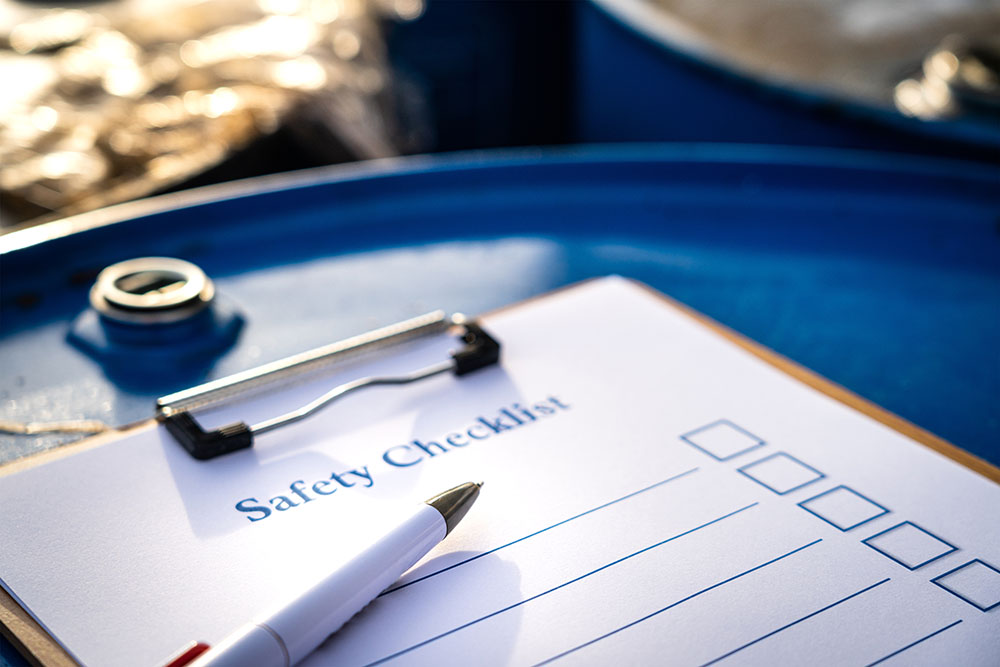How To Avoid Mercury Exposure

CONTENTS
- What is mercury?
- What types of mercury are there?
- How can you be exposed to mercury?
- How to avoid mercury exposure
- What to do if you are exposed to mercury
- Regulation and policies on mercury use and exposure
- Frequently asked questions
- Get in touch
Mercury is an element that we all recognise in its elemental form of quicksilver. Despite its harmless appearance, mercury can be dangerous without the correct precautions and can even cause death in extreme cases of exposure.
In the event of possible mercury exposure, look to ICE Cleaning's emergency response team. Our competent professionals offer mercury clean-up services that ensure complete decontamination. We apply suitable methods to contain, disinfect, and clean your premises.
Read on to learn more about mercury, its various forms, and how exposure occurs so you can avoid it.
What is mercury?
Mercury, a heavy, silvery-white metal, also known as quicksilver, is unique. It is the only metallic element that stays liquid at room temperature. Because of its unusual properties, it has found use in many sectors like medicine and industry.
This element occurs naturally in the earth's crust, but human activities such as mining can release it into our environment. Once released, it can convert into methylmercury - a highly toxic form which builds up in fish and shellfish we consume.
Despite its known toxicity, mercury continues to be crucial in numerous applications, such as electronics and some workplace processes. Safer alternatives are being investigated, but as of 2023 mercury is still a part of our lives.
What types of mercury are there?
Mercury, a naturally occurring metal, comes in three forms. The first is elemental or liquid mercury, which you might recognise from old thermometers. It is shiny and silvery but can break into droplets if disturbed.
The second type is inorganic mercury, usually found as a white powder or crystal. This form results when mercury combines with elements like sulphur.
Last is organic mercury, specifically methylmercury - the most toxic form we know about today. Found mainly in fish and shellfish due to pollution, it poses significant health risks if ingested regularly.
How can you be exposed to mercury?
Mercury exposure can occur in various ways. One common source is the environment, specifically through mercury-containing products like fluorescent lights and batteries. These items release mercury vapour when broken or disposed of improperly.
The workplace also presents potential risks, particularly in industries that use mercury, such as mining or manufacturing. Dental practices often handle amalgam fillings containing organic mercury, which could be harmful if not managed correctly.
Beyond artificial sources, nature itself contains hazards. Certain fish species, like predatory fish and shellfish, absorb methylmercury from their diet and water, accumulating it over time. When we consume these fish, we are exposed to this toxic substance directly.
To prevent unnecessary contact with this dangerous element at home or work, you need awareness about where it is to conduct protective measures effectively.
How to avoid mercury exposure
Preventing mercury exposure requires being aware of potential sources and taking appropriate precautions. At home, ensure you conduct safe mercury disposal methods for items containing mercury, like thermometers or fluorescent lights.
If you work in factory settings that rely on mercury in some industrial processes, ask your employer about safety procedures. Many workplaces need protective gear when dealing with these materials because they may contain small amounts of mercury.
Fish is a common origin of organic mercury, but not all types carry the same potential danger. Larger predatory fish often have more methylmercury than smaller species due to biomagnification.
As each predator consumes its prey, it accumulates their toxins. So, limiting the consumption of large predatory fish can help reduce exposure sources.
For environmental exposure, living near buildings that release mercury into the air can increase your risk. However, staying informed about local industrial activities helps in making decisions about where to live and how long you spend outdoors during peak emission times source.
What to do if you are exposed to mercury
If you find yourself exposed to mercury, it is vital not to panic. Remove any clothing that may have been in contact with the mercury without delay and ensure it is safely discarded. You must open windows to promote ventilation and remove dangerous vapours from the air.
Next, wash your skin thoroughly with soap and water, but avoid scrubbing as this can increase absorption. If your eyes were exposed, rinse them well for 15 minutes using lukewarm water.
You must then seek immediate medical attention by calling 111 or 999 if you are showing symptoms of mercury poisoning. While waiting for help or en route to a hospital, try breathing fresh air if possible – it could lessen some effects of inhalation exposure.
Ingesting mercury is particularly harmful, so never induce vomiting unless advised by a health professional. Finally, remember that prompt action after exposure could significantly reduce potential harm from mercury poisoning. Some symptoms to watch out for include:
- Tremors
- Headaches
- Breathing problems
- Rashes
- Memory loss
- Slurred speech
- Weak muscle strength
Regulation and policies on mercury use and exposure
Regulations and policies are crucial in controlling mercury use and limiting exposure. The UK government has set strict guidelines to manage this potent neurotoxin.
The Environmental Improvement Plan released this year states that it will "reduce land-based emissions of mercury to air and water by 50% by 2030." The EU is taking similar steps with its recent revision to Mercury Regulation, pledging to ensure a mercury-free economy by 2028.
Beyond national borders, international treaties like the Minamata Convention on Mercury work towards reducing global mercury pollution. Its implementation can significantly reduce risks associated with methylmercury found in fish and seafood.
In workplaces that manage or produce items that include mercury - like batteries or fluorescent lights - the Health & Safety Executive (HSE) strictly enforces customised safety precautions. Adherence to these rules is critical not only from a legal standpoint but also for protecting employee health.
Frequently asked questions
How can you protect yourself from mercury?
Reduce your exposure by eating fish low in mercury, limiting contact with products containing it, and following safety measures at work.
How can I reduce mercury ingestion naturally?
Eat a diet rich in selenium, like Brazil nuts or yellowfin tuna. It binds to mercury, reducing its toxicity.
What fish are high in mercury?
Fish that typically have high levels of mercury include shark, swordfish, king mackerel, and tilefish.
How do you detox from mercury safely?
Safely detoxing requires medical supervision. You may need chelation therapy under professional guidance if the exposure is severe enough.
Get in touch
When faced with the threat of mercury exposure, our emergency response cleaning team should be your first call. Our certified specialists specialise in mercury spill cleaning services, regardless of size. We utilise industrial-grade technology and solutions to neutralise and sanitise an affected area.
To learn more about our services, get in touch with our friendly customer service teams at 0208 066 0360 or enquiries@icecleaning.co.uk. Our team operate nationwide and can attend to your needs 24/7, 365 days a year. We can be on-site within a few hours, ensuring your property or workplace is safe again.

Speak with me today,
I’m here to help
By asking you a few questions either via phone or email I can immediately provide a realistic estimation of the cost.
You’re in good company. We’ve cleaned for the following commercial clients… View all

Why choose us?
- Cater to a wide variety of cleaning situations
- Nationwide coverage, available 24/7
- Cater to commercial and domestic clients
- Free survey provided prior to quotation
- Emergency response team
- Offer a bespoke service designed to suit all your needs
- All technicians hold professional health and safety qualifications, including BICSc, IOSH, Dewpoint Professional & Safe Contractor
We’re fully accredited
We place best practise, professional expertise and health and safety at the core of our business. We’re fully compliant with all legal obligations. You can view a list of our accreditations below, or visit our Health & Safety page for more information.











-RGB-small.1707319151.jpg)




















